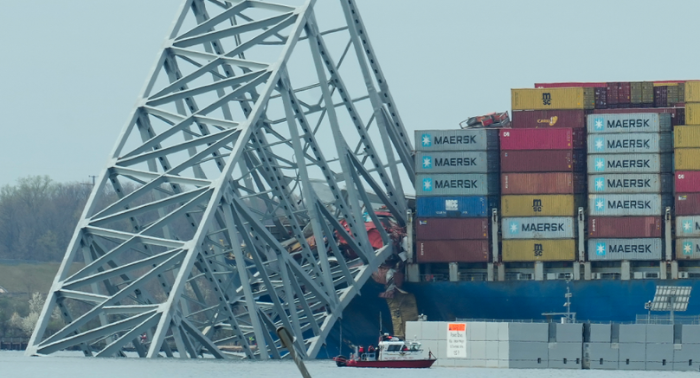Ports along the Eastern Seaboard are preparing for an influx of cargo redirected from the Port of Baltimore following the collapse of the Francis Scott Key Bridge early Tuesday morning.
According to industry insiders and port authorities, cargo shipments are being rerouted due to the closure of the Port of Baltimore to vessel traffic.
MacKenzie Chalmers, an administrative coordinator at Tradepoint Atlantic, a marine terminal and industrial rail operator, stated that they have been engaged in numerous meetings throughout the day to address the situation.
Tradepoint Atlantic collaborates with major companies such as Amazon, Home Depot, McCormick, BMW, and Volkswagen.
A spokesperson from the Virginia Port Authority indicated that they anticipated an increase in cargo passing through the state’s port system but emphasized that the details were still being determined.
“We are in constant communication with customers and ocean carriers to decide the best course of action for landing the cargo,” said Joe Harris, the spokesperson.
Meanwhile, the Port of New York and New Jersey announced its efforts to assist shipping companies in alleviating the pressure on East Coast supply chains caused by the closure of the Baltimore port.
It is expected that some of the cargo originally destined for Baltimore will be redirected to New York, which is the largest port on the East Coast and the second-largest in the country after Los Angeles.
Despite the challenges posed by the bridge collapse, several East Coast ports have stated that they have the capacity to absorb the additional shipments, potentially mitigating the impact on overhead costs and consumer prices.
The Port of Baltimore, although closed to ships, remains operational for truck traffic, with terminals continuing to operate.
Brent Howard, president of the Baltimore County Chamber of Commerce, expressed confidence that any disruptions would be temporary, with logistics and shipping operations expected to resume smoothly after initial adjustments.
While the Port of Baltimore primarily handles “roll on, roll off” cargo like vehicles and heavy machinery, experts anticipate that automobile shipments may be the most directly affected by the bridge collapse.
Shipping analyst John Kartsonas noted that Baltimore plays a significant role in importing consumer goods and vehicles into the US, suggesting that deliveries of new cars could be particularly impacted.




